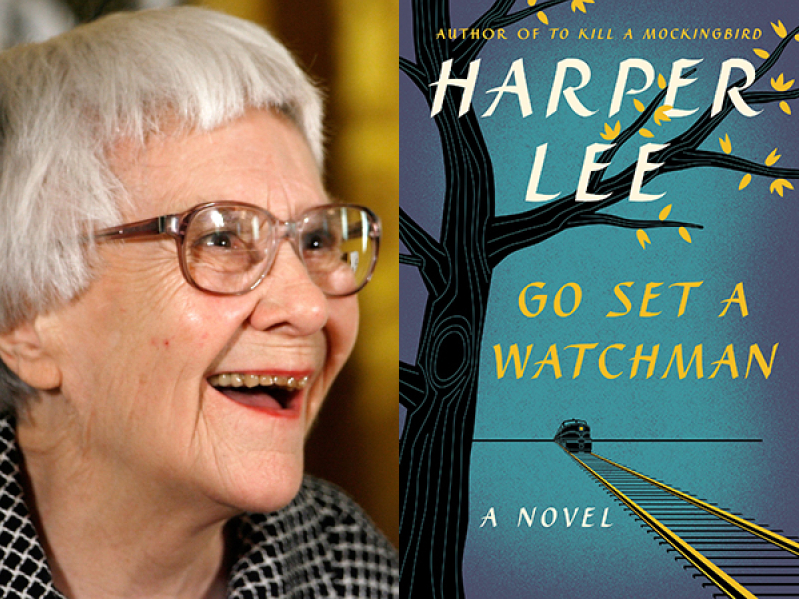
While Harper Lee's bestselling new novel, "Go Set a Watchman," focuses primarily on the themes of social inequality and justice, the story is equally brimming with religious imagery and Biblical truths.
"Watchman," officially released in stores last week, is set 20 years after its critically-acclaimed prequel,"To Kill a Mockingbird." In the story, protagonist Jean Louise Finch--formerly known as Scout--returns home to Maycomb, Alabama from New York to visit her aging father, the beloved literary hero Atticus Finch.
However, instead of having a sweet reunion, Jean Louis is dismayed by the segregation evident in her childhood town and the blatant prejudice of her now 72-year-old father, who once attended a Klu Klux Klan meeting and welcomes racist, pro-segregation speakers at the Maycomb County Citizens' Council meetings.
While "Go Set a Watchman" has received an overwhelming number of scathing reviews from critics horrified Lee's revision of a "literary saint," Religion News Service journalist Cathy Lynn Grossman argues the book is actually a story of redemption steeped in Biblical themes.
Throughout "Watchman," readers are provided with a plethora of religious symbolism and imagery--from church services to baptisms to big-tent revivals.
"Anyone who has endured a fracas over music at worship will appreciate the Methodist church scene of outrage in the pews when the congregation's music director, fresh from summer music camp, tries to "pep up" the organ music and abandon familiar 'Southern hymns,' writes Grossman.
Even more compelling, however, is the Christian moral argument drawn throughout the book as Jean Louise attempts to grapple with her father's racism.
Grossman writes, "In 'Mockingbird,' the childlike, reclusive but harmless neighbor Boo Radley is allowed to return to his 'place' after his timely rescue of little Scout and her brother. In 'Watchman,' there's a cruel flip side to this seemingly Christian kindness. Atticus wants all people he sees as 'childlike'- including all black people - overseen by the paternal wisdom of white society."
Grossman continues, "Jean Louise, who believes herself colorblind, is shocked to the core, certain she has been betrayed by the father she once idolized. The book's final chapters are a dense legal, moral and psychological showdown as the young adult Jean Louise fights with her father over truth and equality."
In one particularly poignant passage of the book, Jean Louise angry confronts Atticus, Grossman notes, "aligning herself with religious truth":
"You are telling them that Jesus loves them, but not much. You are using frightful means to justify ends that you think are for the good of most people. ... You just try to kill their souls instead of their bodies. You just try to tell 'em, 'Look, be good. Behave yourselves. If you are good and mind us, you can get a lot out of life, but if you don't mind us, we'll give you nothing and take away what we've already given you.'"
Grossman concludes, "If Atticus was the moral spine of "Mockingbird," in "Watchman" that spine is Jean Louise, stepping out of the murky pond of childhood to claim her own, Bible-steeped moral identity."
According to Lee's friend and historian Wayne Flynt, the Biblical parallels found throughout "Watchman" are not surprising, as the author was raised in a Bible-believing home.
The title of the book itself has an origin derived from the Bible verse Isaiah 21:6, which reads, "For thus hath the Lord said unto me, Go, set a watchman, let him declare what he seeth."
"She grew up in a Bible-reading family. She was imprinted with it as a child," Flynt told AL.com. "'Go Set a Watchman' means, 'Somebody needs to be the moral compass of this town,'" Flynt said. "Isaiah was a prophet. God had set him as a watchman over Israel. It's really God speaking to the Hebrews, saying what you need to do is set a watchman, to set you straight, to keep you on the right path. What more elegant title could there be?"
In his review of "Go Set a Watchman," Bishop Will Willimon argues that the book is a "very Christian novel," as Jean Louise continually struggles with the disparity between "Maycomb residents' universally held Christian convictions and the racist civilization they have built."
"'Go Set a Watchman' is a story of redemption, of the Wesleyan New Birth as a painful opening of the eyes, of the move into adulthood as learning to tell the truth," he writes. "Even as the child Scout stared at her world, seeking the truth of things, so Jean Louise Finch stares at hers and dares to declare what she sees, thereby blessing the rest of us, if we dare to hear."






